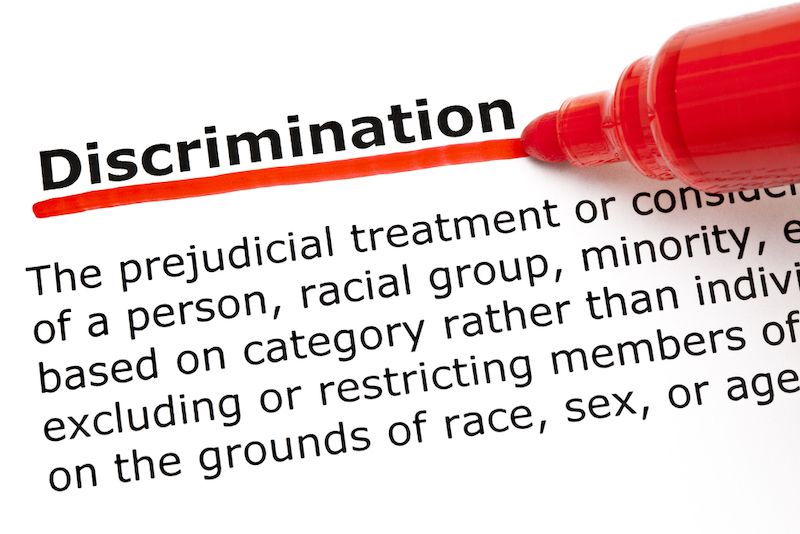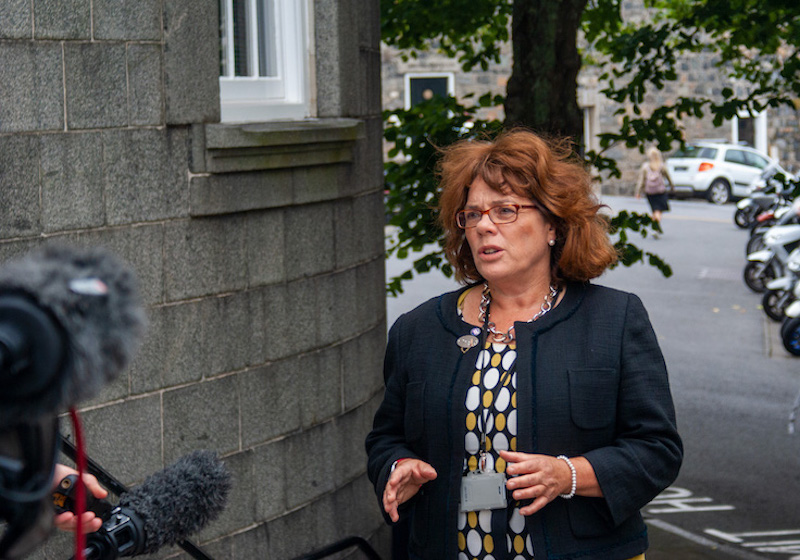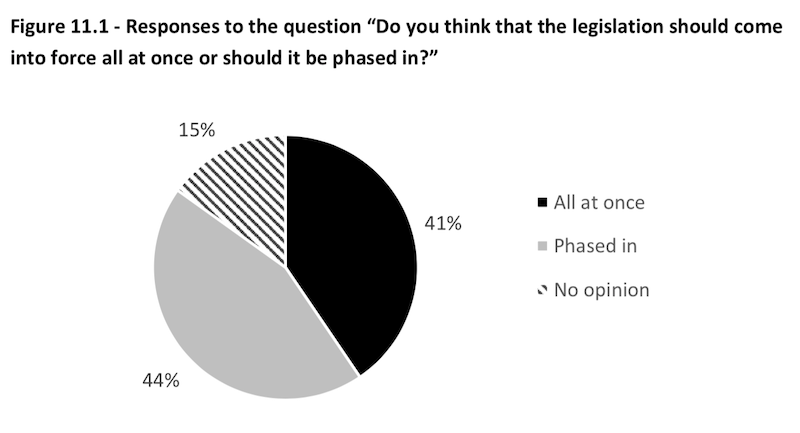


Guernsey was totally polarised in its views on plans for a wide-reaching, compassionate and leading set of discrimination laws, the results of a consultation has revealed.
The findings of the consultation, which asked specific questions about the proposals, have been published now, despite the fact that Employment & Social Security backed down on its plans and withdrew the legislation.
This happened in November because of pushback from the business community, which believed the legislation would cost businesses too much, and went too far.
Any future proposals are likely to only cover disability, sexuality, religion and race, and leave out age, sex, pregnancy, and marital status.

Pictured: A quote from Deputy Gavin St Pier's letter to Employment and Social Security.
While there was vocal pushback to the plans, the July consultation results have showed there was also support for ESS' approach from a number of the island's minority groups. On the other hand though, businesses were not the only source of opposition. The published results contained letters from other political committees, which featured objections from both Policy & Resources, on the grounds of cost effectiveness, and from Economic Development.
The consultation itself had an "excellent response".

Pictured: Deputy Michelle Le Clerc, the President of Employment & Social Security, said they were hoping to bring their revised legislation to the States before the end of the term.
"I’d like to thank all those who participated for the time and effort invested in responding. I’d also like to thank those organisations that arranged meetings and events during the consultation period which helped us to reach a wide audience. We received over a thousand responses which is really impressive for a technical consultation of this type," said ESS President Deputy Michelle Le Clerc.
"Since the consultation closed we’ve been giving further consideration to the various policy issues raised in the feedback received which may result in substantial changes to the proposals. In many areas, the feedback received has been highly polarised which means the Committee has a challenging path to navigate.
"We’re working hard to finalise our proposals for consideration by the States before the end of this term of government."

Pictured: One example of how polarised Guernsey was in responsding to the specific questions in the consultation.
The published findings themselves said some responses had advocated strongly for the need for the legislation and an Equality Rights Organisation, while others had said there was no evidence discrimination was even happening in Guernsey.
"A third position was to argue against the Committee’s proposals in particular rather than the principle in general, with some feeling the proposals went too far and were not similar enough to what was in place in Jersey and the UK," the report said.
"Those holding this position argued that this could increase the cost of compliance for businesses and make Guernsey less competitive as a jurisdiction. The need for an ERO was also questioned, with suggestions that the Employment Relations Service should be expanded as an alternative.
"A range of other issues were raised about the proposals including discussion about the scope of the grounds of protection (particularly around carer status and whether religion should extend to philosophical belief); the need for consideration of retirement and succession planning in relation to age discrimination; queries over the resourcing of the ERO and Tribunal; concerns about mechanisms for handling vexatious complaints; the role of legal aid in discrimination claims; the need for legally qualified chairs in the Employment and Discrimination Tribunal; queries over whether proposed equal pay provisions extended too far; divided opinion on some points such as harassment and accessibility provisions with regard to whether the proposals went too far or not far enough; suggestions that employers should be required to monitor equality; and suggestions to broaden the definition of employment to include more casual workers."
What comes next?
The report said: "The Committee is now giving further consideration to the various policy issues raised in the feedback received, which may result in substantial changes to the policy proposals. Due to the quantity of feedback and in order to manage workload the President of the Committee announced in November 2019 that the proposals would be refocused on fewer grounds of protection with disability and carer status as a priority.
"The Committee intends to bring a policy letter to the States before the end of the current political term later this year."
To read the full report, which examined the results of the consultation, click here.
Comments
Comments on this story express the views of the commentator only, not Bailiwick Publishing. We are unable to guarantee the accuracy of any of those comments.